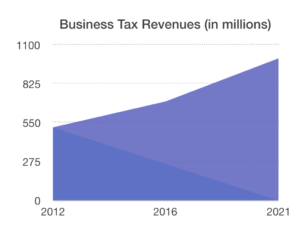Until last week, it was legal to for small New Hampshire farms to sell raw (unpasteurized) milk, cream, cheese, butter, yogurt and kefir directly to consumers. But anyone stopping at a local farm and hoping for raw milk ice cream was out of luck. That product was illegal.
Legislators discovered this omission in 2019 when Little Red Hen Farm in Pittsfield was cited for selling ice cream made from raw goat’s milk. Farmer Jill Fudala said she thought she could sell the ice cream since the state let her sell all the other raw milk products.
But it turns out that legislators had left ice cream off the list of approved raw milk products.
Rep. James Allard, co-sponsor of House Bill 95, to allow the sale of raw milk ice cream, said at a hearing last March that no one knew why ice cream was excluded.
The bill, signed into law by Gov. Chris Sununu last week, limits raw milk ice cream servings to six ounces. (Farms where raw milk sales are allowed without a license are limited to producing no more than 20 gallons of raw milk a day.)
The size restrictions are to limit outbreaks. Unpasteurized dairy products are more likely to contain harmful bacteria. State officials reason that prohibiting large-scale production of raw milk products reduces the risk to the public while allowing small farms to deal in small quantities.
It’s a balancing act. After pasteurization became widely available, bans on unpasteurized dairy products followed. But modern farms are cleaner than their predecessors of a century ago. As raw milk has become a trendy consumer product, many states have responded by carving out exceptions to the bans.
In New Hampshire’s case, the exception made an exception of ice cream.
This seemingly insignificant story offers three real-life lessons for thinking about public policy.
1. The details matter. Minor mistakes or oversights in writing rules and regulations can have real consequences. Because legislators left one dairy product out of a list, a small farm was cited by the state for doing something that aligned with the spirit, but not the letter, of the law.
2. Attempting to eliminate risk creates other risks. Banning raw milk sharply cuts the risk of bacterial infection. The tradeoff is that it puts small farms at increased risk of failure. Lawmakers opted to strike a balance by allowing limited raw milk sales at small farms and requiring labeling so consumers would know what they were buying. A co-sponsor of HB 95, Rep. William Marsh, is a medical doctor. He testified last March that allowing small-scale raw milk sales would carry some limited risk of illness, but the overall risk would be reduced because the state could then focus its inspection efforts on larger farms that carried much larger public health risks.
3. Every industry regulation attracts rent-seeking. HB 95 was a tiny change to allow tiny farms to sell tiny ice creams. And yet large dairy lobbyists tried to crush it. In April of last year, the National Milk Producers Federation (which sounds like a cartel from Star Wars) and the International Dairy Foods Association sent a letter requesting that legislators kill the bill.











